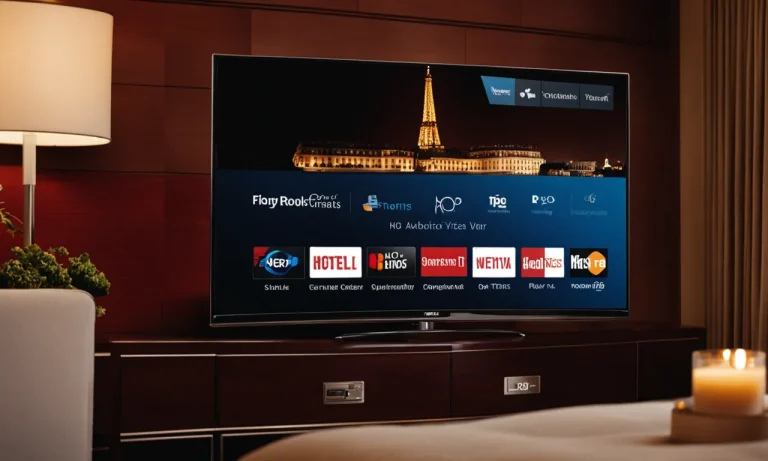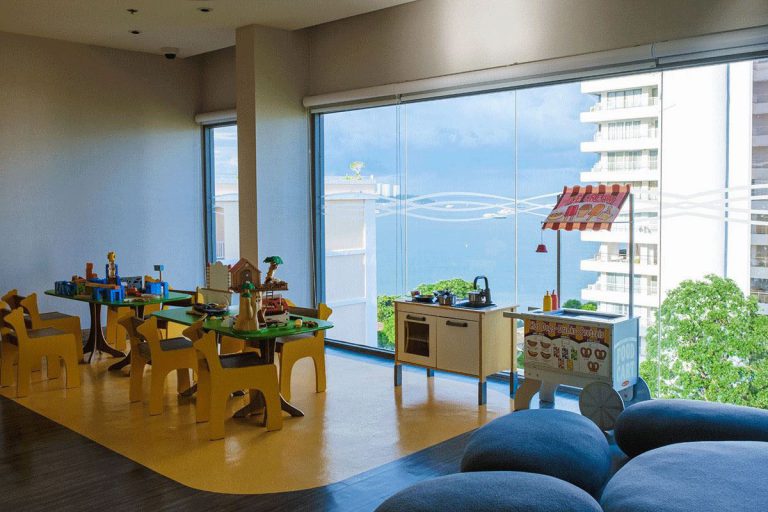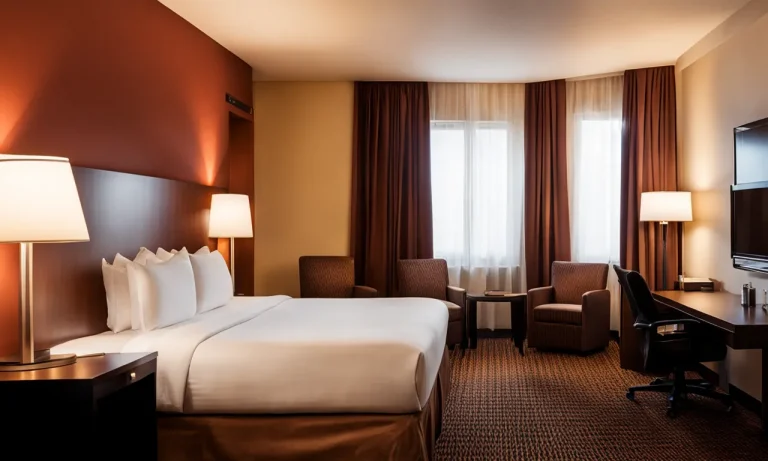When booking a Vegas vacation, you may be tempted to cram extra people into your hotel room to save money. But is this allowed, and do Vegas hotels really monitor room occupancy limits? The answer is not so straightforward.
If you’re short on time, here’s a quick answer to your question: Yes, Vegas hotels generally do care how many guests stay in each room and will charge fees for exceeding occupancy limits. However, enforcement varies by property.
In this comprehensive guide, we’ll cover hotel room occupancy policies in Las Vegas. You’ll learn about: standard occupancy limits and extra guest fees; how and why hotels enforce maximums; tricks people use to avoid detection; the risks of exceeding occupancy; and how to properly book for your group size.
Standard Hotel Room Occupancy Limits
When it comes to hotel stays, one may wonder if Vegas hotels actually care how many people are in a room. The answer is yes, and it all boils down to safety regulations, fire codes, and guest comfort.
Each hotel establishment has its own set of rules and policies regarding room occupancy limits. These limits are in place to ensure the well-being and satisfaction of all guests.
Common Room Types
Different room types have varying occupancy limits. Standard hotel rooms typically have a maximum occupancy of two to four guests, depending on the hotel’s policies.
This is to guarantee that everyone has enough space to move comfortably and to maintain a peaceful atmosphere for all guests. It also helps hotels manage resources such as towels, toiletries, and other amenities provided to each room.
It’s important to note that exceeding the maximum occupancy may result in additional charges or even refusal of service by the hotel. This is because hotels have a responsibility to ensure the safety and comfort of their guests, and overcrowding can pose risks in case of emergencies.

Exceptions for Children
Hotels often make exceptions for children in terms of room occupancy. Many hotels allow children under a certain age to stay in the same room as their parents without counting them towards the maximum occupancy.
This is to accommodate families and make their stay more convenient and enjoyable. However, it’s essential to check with the specific hotel’s policies regarding children and room occupancy, as these may vary.
Las Vegas Resort Fee Impacts
Las Vegas hotels are known for their resort fees, which are additional charges added to the room rate. These fees cover various amenities and services offered by the hotel, such as pool access, fitness center usage, and Wi-Fi.
It’s worth noting that resort fees are typically charged per room, regardless of the number of occupants. So, if you exceed the maximum occupancy for a room, you may still be required to pay the same resort fee.
Understanding the room occupancy limits and policies of Vegas hotels is crucial for a smooth and enjoyable stay. It ensures that all guests can relax comfortably and that hotels can provide the best service possible.
So, the next time you’re planning a trip to Las Vegas, make sure to check the hotel’s occupancy limits and policies to avoid any inconvenience or unexpected charges.
Typical Extra Guest and Occupancy Fees
When it comes to accommodating additional guests in a hotel room, many Vegas hotels have specific policies in place that outline the charges and fees associated with extra occupants.
These fees can vary depending on the hotel and the number of guests involved. It is important for guests to be aware of these fees to avoid any surprises during their stay.
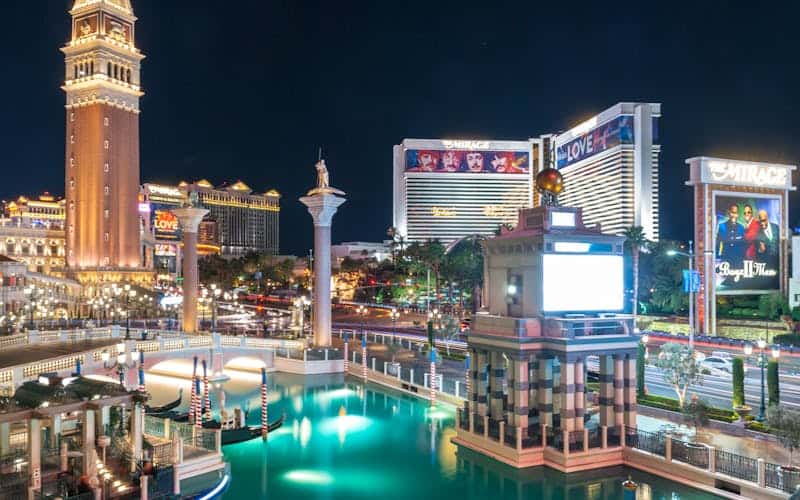
Per Person Charges
Some hotels in Las Vegas charge a per person fee for each additional guest beyond the standard occupancy limit. This means that if a room has a maximum occupancy of two people and a third person wants to stay, there will be an extra charge for that additional person.
These charges can range from a few dollars per night to a significant amount, depending on the hotel’s policies. It is advisable to check with the hotel in advance to understand their specific charges for extra guests.
Minimum Fees
In addition to per person charges, some hotels may also have a minimum fee for accommodating extra guests. This means that even if the room’s maximum occupancy is not reached, there will still be a minimum fee applied for each additional person.
For example, if a hotel has a minimum fee of $50 per extra guest and a room can accommodate up to four people, even if there are only three occupants, the minimum fee will still apply.
Varying Fee Amounts
The fee amounts for extra guests can vary greatly from one hotel to another. Factors such as the hotel’s star rating, location on the Vegas Strip, and amenities offered can influence these fees.
It is not uncommon for luxury hotels to have higher fees compared to budget-friendly accommodations. Additionally, the time of year and demand for hotel rooms can also impact the fee amounts. During peak seasons or special events, hotels may charge higher fees for accommodating extra guests.
It is important for guests to be aware of these fees in order to budget accordingly and avoid any surprises at check-in. Checking the hotel’s website or contacting their customer service can provide the most accurate and up-to-date information regarding extra guest fees.
How Vegas Hotels Enforce Occupancy
When it comes to enforcing occupancy in Las Vegas hotels, several methods are employed to ensure compliance with the rules and regulations. From using room key data to conducting room checks and implementing video surveillance, hotels in Sin City take occupancy seriously.
Room Key Data
One way that Vegas hotels keep track of how many people are in a room is through room key data. Each time a guest enters or exits their room, their key card is swiped, and this information is logged in the hotel’s system.
By monitoring the frequency and duration of key card swipes, hotels can identify any discrepancies in the number of occupants in a room.
This method not only helps hotels enforce occupancy limits but also ensures the safety and security of guests. By having a record of who is in each room, hotels can quickly respond to any emergencies or incidents that may occur on their premises.
Room Checks
In addition to room key data, hotels also conduct periodic room checks to verify the number of occupants. Trained staff members may knock on doors and ask guests about the number of people staying in the room.
While this may seem intrusive to some, it is a necessary measure to ensure that hotels are complying with fire codes and safety regulations.
Room checks are typically conducted discreetly and at random times to avoid causing inconvenience to guests. They are an effective way for hotels to deter overcrowding and maintain a comfortable and safe environment for all guests.
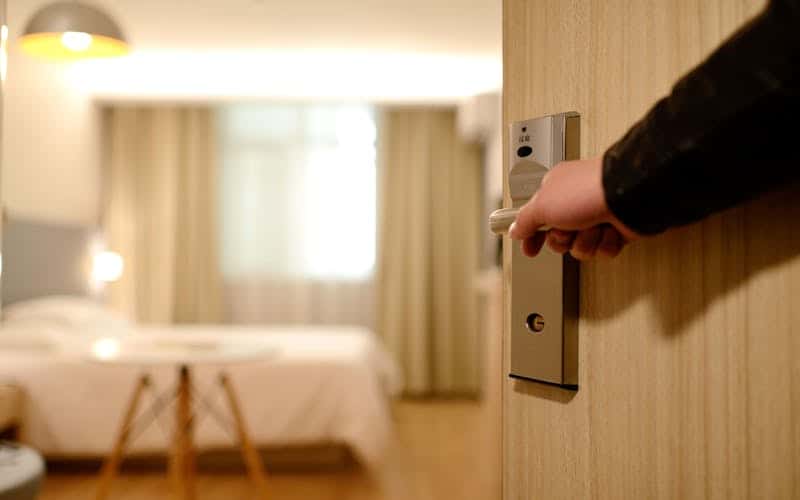
Video Surveillance
Another method used by Vegas hotels to enforce occupancy is through the use of video surveillance. Many hotels have cameras strategically placed throughout their premises, including hallways and common areas. These cameras can help monitor the number of people entering and exiting rooms, as well as identify any unauthorized guests.
Video surveillance serves as a deterrent for guests who may consider exceeding occupancy limits or bringing in additional visitors without notifying the hotel. It also provides valuable evidence in case of any disputes or incidents that may arise during a guest’s stay.
It’s important for hotels to enforce occupancy limits not only to comply with regulations but also to ensure the comfort and safety of all guests. By utilizing room key data, conducting room checks, and implementing video surveillance, Vegas hotels can effectively enforce occupancy and maintain a pleasant experience for their guests.
Attempts to Bypass Occupancy Limits
In the vibrant city of Las Vegas, where hotels are known for their luxurious accommodations and lively atmosphere, it’s no surprise that some guests may attempt to bypass the occupancy limits set by the hotels.
These limits are put in place to ensure the safety and comfort of all guests, as well as to comply with fire codes and other regulations.
Booking with Max Allowed
One common method used by guests to bypass occupancy limits is by booking a room with the maximum number of guests allowed. Hotels typically have policies in place that specify the maximum number of occupants per room, which can vary depending on the room type and hotel.
By booking a room with the maximum allowed occupancy, guests may hope to avoid any questions or issues during their stay.
Sneaking Guests In
Another way guests try to bypass occupancy limits is by sneaking additional guests into their room. This can involve having friends or family members enter the hotel through alternate entrances or pretending that the additional guests are staying in a different room.
While some guests may think this is a harmless way to save money or accommodate more people, it can lead to overcrowding, noise complaints, and potential safety hazards.
Using Connecting Rooms
Some guests may attempt to bypass occupancy limits by booking multiple connecting rooms and utilizing the connecting doors to create a larger living space.
While this may seem like a clever way to accommodate a larger group, hotels are aware of this tactic and may enforce occupancy limits per room, regardless of the connecting doors. It’s important to note that attempting to bypass occupancy limits is not only against hotel policies, but it can also have serious consequences.
Hotels have the right to refuse service or ask guests to leave if they are found to be violating occupancy limits. Additionally, overcrowded rooms can pose safety risks and may be in violation of local fire codes.
If you are planning a trip to Las Vegas, it’s best to book a room that accommodates the number of guests you will have and to comply with the occupancy limits set by the hotel. This will ensure a comfortable and enjoyable stay for everyone.
Risks and Penalties of Exceeding Occupancy
When it comes to staying at a hotel in Las Vegas, it’s important to understand the risks and penalties associated with exceeding the maximum occupancy of a room.
Hotel regulations are in place to ensure the safety and comfort of all guests, and violating these rules can lead to various consequences.
Fines and Eviction
One of the most immediate risks of exceeding occupancy is the possibility of facing fines or even eviction from the hotel. Hotels have strict rules regarding the maximum number of people allowed in each room, and exceeding this limit can disrupt the hotel’s operations and create safety hazards.
In some cases, hotels may charge a per-person fee for each additional guest, while others may impose a flat fine for violating the occupancy limit. If the hotel determines that the overcrowding is severe, they may even ask the extra guests to leave or evict the entire party.
Loss of Security Deposit
Another potential consequence of exceeding occupancy is the loss of your security deposit. Hotels often require guests to provide a security deposit upon check-in, which is intended to cover any damages or extra cleaning required after their stay.
If the hotel discovers that the room was occupied by more people than allowed, they may deduct a portion or the entirety of the security deposit to compensate for the added wear and tear or potential damages caused by the additional guests. This can be particularly frustrating for guests who were not aware of the occupancy rules.
Increased Wear and Tear
Exceeding the occupancy limit can result in increased wear and tear on the hotel room. More people in a room means more foot traffic, additional strain on the furniture, and a higher likelihood of accidents or spills.
Hotels have limited resources and staff to maintain and clean their rooms, so when the occupancy is exceeded, the room may not be adequately prepared for the increased usage. This can lead to more rapid deterioration of the room and its amenities, ultimately costing the hotel time and money to repair or replace damaged items.

Booking Properly for Your Group Size
When it comes to booking a hotel room in Las Vegas, it’s important to consider the size of your group.
Some hotels have strict occupancy rules and may charge extra fees or even refuse service if the number of guests exceeds the room’s capacity. To ensure a smooth and hassle-free stay, here are a few tips for booking properly for your group size.
Get Adjoining Rooms
If you’re traveling with a larger group, getting adjoining rooms can be a great option. Adjoining rooms are separate rooms that are connected by a door, allowing you to easily move between them without having to go through the hallway.
This can provide more space and privacy for everyone in your group while still keeping you close together. Be sure to check with the hotel in advance to see if they offer adjoining rooms and to make the necessary arrangements.
Book a Suite
Another option for accommodating a larger group is to book a suite. Suites are typically larger than standard hotel rooms and may have separate bedrooms, living areas, and even kitchenettes.
This can provide more space and comfort for your group, allowing everyone to relax and unwind after a day of exploring the Las Vegas Strip. Keep in mind that suites can be more expensive than standard rooms, so be sure to factor this into your budget.
Reserve a Hospitality Suite
If you’re traveling with a large group for a special occasion or event, reserving a hospitality suite can be a fantastic option. Hospitality suites are designed for entertaining and often feature spacious living areas, dining tables, and wet bars.
They are perfect for hosting gatherings or pre-partying before hitting the Vegas nightlife. However, it’s important to note that hospitality suites are in high demand and can be quite expensive, so make sure to book well in advance.
It’s worth mentioning that each hotel may have its own policies and rules regarding room occupancy, so it’s always a good idea to check with the specific hotel you plan to stay at.
Additionally, websites like Vegas.com or Booking.com can provide valuable information on room types and availability, allowing you to make an informed decision based on your group’s needs.
By booking properly for your group size, you can ensure a comfortable and enjoyable stay in Las Vegas without any surprises or inconveniences. So, whether you choose adjoining rooms, a suite, or a hospitality suite, plan ahead and find the perfect accommodation that suits your group’s needs.
Conclusion
Although tempting for the budget, cramming excess guests into your Vegas hotel room is not advisable. The number of people in the room does matter to hotels for safety, fees, and preventing wear and tear.
While enforcement varies, penalties and fines make it risky to exceed posted occupancy limits. For a comfortable Vegas trip, book properly for your group size.
By understanding hotel policies, avoiding tricks, and booking suitable accommodations, you can have an enjoyable Vegas vacation without occupancy hassles. Respect room limits so everyone in your party can relax and indulge in Vegas fun, comfortably and affordably.


